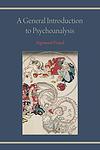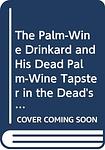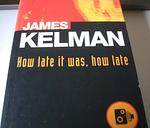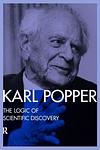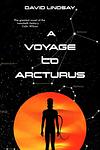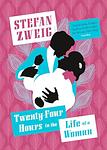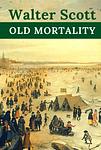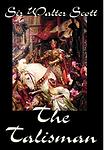The Greatest Nigerian, Scottish, Austrian Books of All Time
Click to learn how this list is calculated.
This list represents a comprehensive and trusted collection of the greatest books. Developed through a specialized algorithm, it brings together 305 'best of' book lists to form a definitive guide to the world's most acclaimed books. For those interested in how these books are chosen, additional details can be found on the rankings page.
Genres
Countries
Date Range
Reading Statistics
Click the button below to see how many of these books you've read!
Download
If you're interested in downloading this list as a CSV file for use in a spreadsheet application, you can easily do so by clicking the button below. Please note that to ensure a manageable file size and faster download, the CSV will include details for only the first 500 books.
Download-
26. The Piano Teacher by Elfriede Jelinek
"The Piano Teacher" is a dark exploration of power dynamics, sexuality, and repression. The story revolves around a piano teacher at a prestigious music school in Vienna who lives with her overbearing mother in a state of emotional and sexual repression. Her life takes a turn when she becomes sexually involved with a young, self-assured student. The relationship, marked by sadomasochistic games and emotional manipulation, spirals out of control, leading to a tragic end. The book is a profound critique of bourgeois values and the oppressive structures of society.
The 1059th Greatest Book of All Time -
27. A General Introduction to Psycho-Analysis by Sigmund Freud
This book is a comprehensive introduction to the field of psychoanalysis, presented by its founder. It explores the unconscious mind, dreams, and the theory of neuroses. The author delves into the mechanisms of the mind, such as repression and resistance, and how these can lead to psychological issues. He also discusses his controversial theories on sexual desire as a driving force in human behavior. The book provides an in-depth understanding of the human psyche and the techniques used in psychoanalysis to treat mental disorders.
The 1092nd Greatest Book of All Time -
28. Trainspotting by Irvine Welsh
This novel is a gritty, raw portrayal of a group of heroin addicts living in Edinburgh, Scotland. The narrative is non-linear and told from multiple perspectives, providing a deep dive into the minds and lives of these characters. The story explores themes of poverty, addiction, friendship, and the struggle to escape one's circumstances, all set against the backdrop of a bleak urban landscape. It is known for its strong Scottish dialect, graphic content, and dark humor.
The 1102nd Greatest Book of All Time -
29. Civilization and Its Discontents by Sigmund Freud
This book is a seminal work in the field of psychology, exploring the inherent tension between civilization and the individual. The author, a famed psychologist, argues that civilization's imposition of societal norms and restrictions leads to individual unhappiness and discontent. He delves into the conflict between the human desire for freedom and society's need for order, suggesting that this tension is at the root of much human suffering. The book further explores concepts such as the super-ego, guilt, and the death drive, offering profound insights into the human psyche.
The 1113th Greatest Book of All Time -
30. The Palm Wine Drinkard And His Dead Palm Wine Tapster In The Dead's Town by Amos Tutuola
This novel follows the surreal and fantastical journey of an African man with an insatiable thirst for palm wine, who, after the death of his skilled tapster, embarks on a quest to the land of the dead in hopes of bringing him back to the world of the living. Along the way, he encounters a myriad of bizarre and supernatural obstacles, including ghosts, witches, and other mythical creatures, each presenting their own challenges and moral lessons. The narrative, rich with the oral tradition of Nigerian folklore and written in a distinctive pidgin English, weaves a tale that explores themes of desire, loss, and the intersection of the living and the spiritual realms.
The 1171st Greatest Book of All Time -
31. The Constitution of Liberty by Friedrich von Hayek
This book is a comprehensive analysis of the concept of liberty, emphasizing the importance of individual freedom in political, societal, and economic contexts. The author argues that a free society, where individuals can act according to their own decisions and plans, is the most effective system for human progress. He also explores the relationship between law and liberty, the role of government in a free society, and the challenges to liberty posed by concepts such as social and economic justice.
The 1173rd Greatest Book of All Time -
32. Capitalism, Socialism, and Democracy by Joseph A. Schumpeter
The book provides an in-depth analysis of the interplay between capitalism, socialism, and democracy, arguing that capitalism is a catalyst for creative destruction and innovation, but also paves the way for socialism due to its inherent instability and tendency to create wealth inequality. It further suggests that democracy, while imperfect, is the best system to manage these economic systems. The author presents a unique perspective on the inevitable rise of socialism, not through revolution as Marx predicted, but through the legal and systematic erosion of capitalism by democratic means.
The 1176th Greatest Book of All Time -
33. Three Essays on the Theory of Sexuality by Sigmund Freud
This book is a seminal work that presents the author's theories on human sexuality, including his concept of sexual development through psychosexual stages. It explores topics such as the sexual aberrations, infantile sexuality, and the transformation of puberty. The author argues that sexual drive is present from birth, and that children go through several stages of sexual development. He also discusses the idea of sexual perversions and their origins. This book is considered a foundational text in the field of psychoanalysis.
The 1210th Greatest Book of All Time -
34. Second-class Citizen by Buchi Emecheta
"Second-Class Citizen" is a poignant narrative about a young Nigerian woman, Adah, who dreams of getting an education and moving to the United Kingdom. Despite cultural and societal obstacles, Adah manages to achieve her dream but is met with more hardship as she faces racial discrimination, an abusive marriage, and the struggle of raising five children in a foreign land. Through her resilience, she continues to strive for a better life, depicting the struggles of immigrants and the strength of women.
The 1244th Greatest Book of All Time -
35. How Late It Was, How Late by James Kelman
The novel is a stream-of-consciousness narrative told from the perspective of Sammy, a shoplifter and ex-convict from Glasgow who wakes up in an alley after a two-day drinking binge to find he is completely blind. As Sammy struggles to navigate his new reality, he contends with bureaucratic systems, confronts his past, and grapples with his relationships, all while trying to understand and adjust to his sudden loss of sight. The story is a gritty exploration of working-class life, the human condition, and the nature of reality.
The 1337th Greatest Book of All Time -
36. Extinction by Thomas Bernhard
"Extinction" is a novel that explores the dark and complex themes of family, identity, and history through the eyes of its protagonist, a professor living in Rome. When he receives news of the deaths of his parents and brother in a car accident, he is forced to confront his past and his Austrian heritage. The narrative delves into his thoughts and feelings, his criticisms of his family and society, and his philosophical musings on life and death, all while he prepares to return to his family's estate for the funeral. The novel is renowned for its dense, stream-of-consciousness style and its unflinching examination of the human condition.
The 1421st Greatest Book of All Time -
37. The Left-Handed Woman by Peter Handke
"The Left-Handed Woman" is a poignant, introspective novel that explores the life of a woman who decides to live alone after her husband leaves on a business trip. She attempts to find her own identity and independence by distancing herself from her usual social circles, including her young son. The novel is a deep dive into her thoughts, feelings, and experiences as she navigates her new life, offering a profound exploration of solitude and self-discovery.
The 1436th Greatest Book of All Time -
38. The Forty Days Of Musa Dagh by Franz Werfel
This novel is a gripping historical fiction that recounts the harrowing tale of Armenian villagers who resist their deportation by the Ottoman Empire during the Armenian Genocide of 1915. Centered around the heroic stand of the people of Musa Dagh, the narrative delves into the struggle for survival, unity, and defiance against overwhelming odds. Through the lens of this resistance, the book explores themes of identity, resilience, and the human spirit's capacity to fight for freedom and justice. It serves as a poignant reminder of a dark chapter in history, highlighting the courage and determination of those who fought against their oppressors.
The 1475th Greatest Book of All Time -
39. The World Of Yesterday by Stefan Zweig
The book is a poignant memoir reflecting on the transformative events and cultural atmosphere of Europe before World War I, through the interwar years and into the rise of the Nazis. It captures the author's experiences of growing up in a vibrant pre-war Vienna, the intellectual richness and artistic achievements of the time, as well as the profound sense of loss as the world he knew disintegrated into chaos and totalitarianism. With a mix of nostalgia and despair, the narrative serves as a lament for the lost world of European culture and as a warning about the fragility of peace and the human cost of war.
The 1486th Greatest Book of All Time -
40. The Logic of Scientific Discovery by Karl Popper
This book is a significant work in the philosophy of science, proposing a methodology for scientific discovery that challenges traditional inductive reasoning. The author argues that scientific theories can never be proven definitively, but can only be corroborated or falsified through empirical testing. He introduces the concept of falsifiability as the key criterion for distinguishing scientific theories from non-scientific ones. The book also delves into the problems of induction, demarcation, and the relationship between theory and observation in scientific practice.
The 1531st Greatest Book of All Time -
41. A Voyage To Arcturus by David Lindsay
"A Voyage to Arcturus" is a philosophical and allegorical novel that follows the journey of a man named Maskull to the planet Tormance, located in the star system Arcturus. As he explores this strange and mystical world, Maskull encounters various beings and experiences profound transformations, both physically and spiritually. Through vivid and imaginative storytelling, the book delves into themes of identity, morality, and the nature of reality, challenging readers to question their own perceptions and beliefs.
The 1548th Greatest Book of All Time -
42. Concrete by Thomas Bernhard
The book is a darkly introspective narrative that delves into the mind of a reclusive, obsessive intellectual who is struggling to complete his scholarly work on the composer Mendelssohn. As he grapples with his own ailments and the perceived mediocrity of his surroundings, the protagonist's stream-of-consciousness monologue reveals his deep-seated anxieties, self-loathing, and profound isolation. The narrative is a relentless examination of the protagonist's psyche, showcasing his critical view of society and his own personal relationships, which are fraught with tension and dysfunction. Through this, the novel explores themes of artistic creation, intellectual elitism, and the suffocating nature of expectations and familial obligations.
The 1747th Greatest Book of All Time -
43. Woodcutters by Thomas Bernhard
Woodcutters is a darkly humorous critique of Vienna's artistic elite. The story takes place over the course of a single evening, as the narrator attends a dinner party in honor of a recently successful actor. As the evening progresses, he reflects on the pretentiousness and hypocrisy of the guests, the mediocrity of their artistic achievements, and the tragic suicide of his former lover. The novel is a scathing indictment of the vanity and self-delusion of the artistic community.
The 1754th Greatest Book of All Time -
44. The Uses of Enchantment by Bruno Bettelheim
"The Uses of Enchantment" is a psychological analysis of fairy tales and their importance in childhood development. The book argues that these stories allow children to navigate their emotions and understand aspects of life they are yet to experience. By exploring various themes, such as separation anxiety, oedipal conflict, and sibling rivalry, through well-known fairy tales, the author demonstrates how these narratives contribute to a child's moral education and understanding of the human nature.
The 1791st Greatest Book of All Time -
45. Guy Mannering by Sir Walter Scott
The novel unfolds as a tale of prophecy and fate intertwined with the lives of its characters, primarily centering around Henry Bertram, the heir to the estate of Ellangowan, who is kidnapped as a child by smugglers after his father's financial ruin. The story spans over two decades, following Henry's adventures and misadventures as he grows up under an assumed identity. The narrative is rich with themes of loyalty, inheritance, and the supernatural, as the predictions of the astrologer Guy Mannering and the Gypsy matriarch Meg Merrilies play out in the lives of the Bertrams and their acquaintances. Set against the backdrop of the Scottish Lowlands, the tale weaves through a tapestry of social change and personal redemption, culminating in the restoration of family and fortune.
The 1811th Greatest Book of All Time -
46. On Aggression by Konrad Lorenz
"On Aggression" is a scientific study that explores the concept of aggression in both animals and humans from an ethological (study of animal behavior) perspective. The author argues that aggression is an innate and necessary instinct that has helped species survive and evolve. However, he also emphasizes that this instinct, when unchecked or misdirected, can lead to destructive behavior and violence. The book provides a comprehensive analysis of the biological roots of aggression, its role in the evolution and survival of species, and its implications for human society.
The 1829th Greatest Book of All Time -
47. Twenty Four Hours In The Life Of A Woman by Stefan Zweig
The novella delves into the intense emotional landscape of a middle-aged English widow who, while staying at a Riviera resort, becomes deeply fascinated by the plight of a young man consumed by a gambling addiction. Over the course of a day, their lives intertwine, leading her to reflect on the nature of obsession and the fleeting moments of passion that can irrevocably alter one's life. As she recounts her own story of moral and emotional upheaval, the narrative explores themes of societal expectations, personal liberation, and the profound impact of ephemeral encounters.
The 1837th Greatest Book of All Time -
48. Seven Years in Tibet by Heinrich Harrer
This book is a travel memoir that recounts the author's escape from a British internment camp in India during World War II and his subsequent journey through the Himalayas to Tibet, where he becomes a tutor and friend to the Dalai Lama. The book provides a detailed account of Tibetan culture, customs, and the political turmoil leading up to the Chinese invasion, as seen through the eyes of a foreigner who spent seven years living there.
The 1843rd Greatest Book of All Time -
49. Old Mortality by Sir Walter Scott
Set in the 17th century during the Covenanting Rebellion in Scotland, the novel weaves a tale of adventure, romance, and political intrigue around the historical events of the time. The story follows the young hero, Henry Morton, who is caught between his loyalty to the Presbyterian Covenanters and his love for Edith Bellenden, a Royalist. As Morton becomes embroiled in the conflict, he must navigate a path through the tumultuous civil war, facing moral dilemmas and the consequences of his choices. The narrative also explores themes of honor, tradition, and the impact of history on individual lives, all while providing a rich portrayal of Scottish culture and the complexities of religious and political loyalties.
The 1851st Greatest Book of All Time -
50. The Talisman by Sir Walter Scott
"The Talisman" is a historical novel set during the Third Crusade, focusing on the conflict between Richard the Lionheart, King of England, and Saladin, Sultan of Egypt and Syria. The story explores themes of chivalry, honor, and the cultural clash between the Christian West and the Islamic East. The plot revolves around a talisman, which is believed to have healing powers, and the knight who is tasked with delivering it to Richard. The novel presents a nuanced view of both sides of the Crusade, highlighting the virtues and flaws of each.
The 1910th Greatest Book of All Time
Reading Statistics
Click the button below to see how many of these books you've read!
Download
If you're interested in downloading this list as a CSV file for use in a spreadsheet application, you can easily do so by clicking the button below. Please note that to ensure a manageable file size and faster download, the CSV will include details for only the first 500 books.
Download
